No armour, no shoes, no hope – the daily life of a Russian soldier
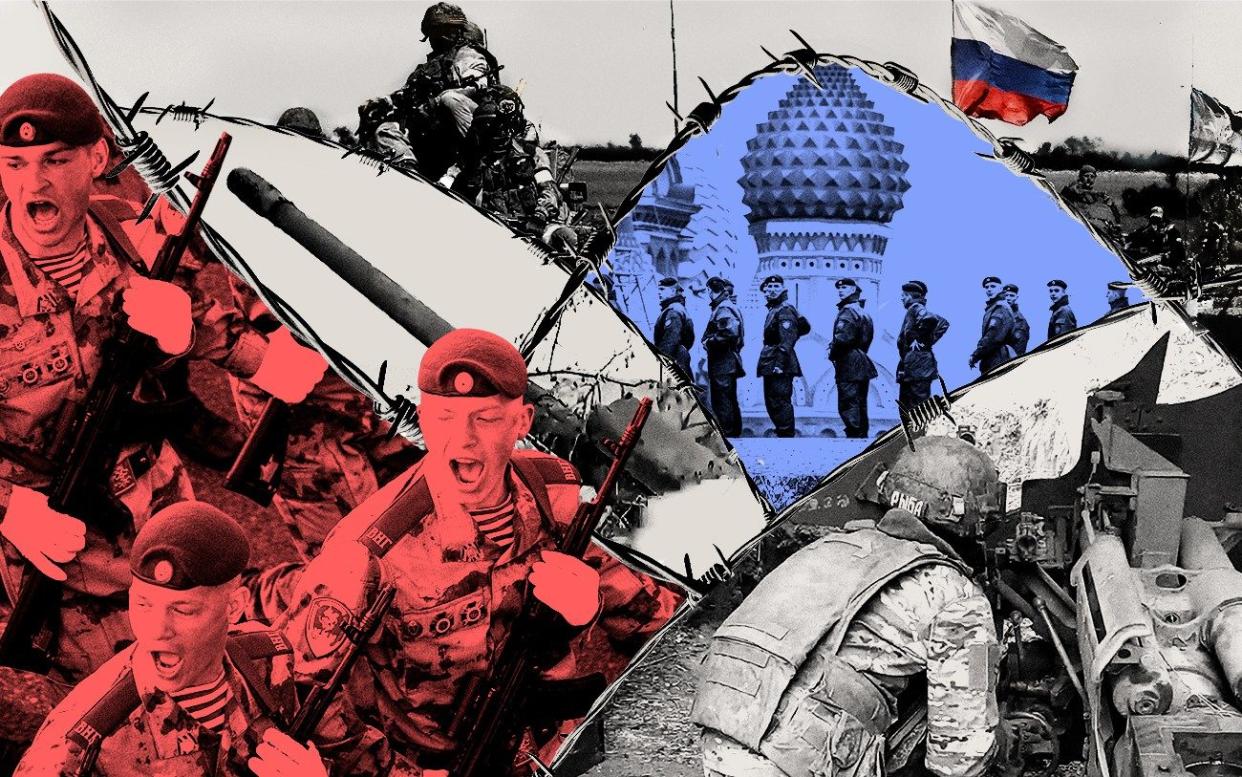
- Oops!Something went wrong.Please try again later.
- Oops!Something went wrong.Please try again later.
With soaring casualty rates and plunging morale, Russian soldiers on Ukraine’s front line are paying a heavy price for Vladimir Putin’s decision to invade.
Aged on average between 20 and 25 years old, and typically from impoverished backgrounds, some are conscripts while others are attracted by slick online advertising and surprisingly good salaries. As Kyiv prepares to launch a major counter-offensive, what is their daily life like?
Dawn raids
Few soldiers on Ukraine’s front line get a decent night’s sleep, as shelling can last all night. Soldiers must also do round-the-clock watch shifts to guard their positions, which change constantly with the tides of battle.
If they’re lucky, they may be in an abandoned school with a basement to use as a bunker, or a house with a vegetable cellar. Otherwise it’s often an uncomfortable night in a trench in a forest, which sometimes has to be dug by hand.
Even when the front sounds quiet, danger still lurks. With daybreak comes Ukraine’s ever-growing swarms of improvised drone-bombers – cheap shop-bought camera drones that hover 80 metres above Russian positions and then drop grenades. They may not be powerful weapons, but can still kill and maim, and leave the Russian troops with very few places where they feel safe.
Morning is also a tempting time for checking one’s phone – despite warnings not to from Russian high command because they can give away your location. In January, when 60 Russian soldiers were killed by a missile attack on a base in a converted school, the Kremlin said that data tracked from their mobile phones had revealed where they were.
Shabby uniform
Most soldiers anywhere near the front line have to sleep fully dressed, going for weeks without baths or showers. The closest they may get to a wash is a packet of wet-wipes for a quick scrub “down there”.
Even when clean, though, Russian uniforms are seldom a source of pride. Cheap Chinese-made boots often disintegrate, or come in different sizes in single pairs. Jackets aren’t warm enough; during the winter months, the mercury will sometimes not rise above freezing for weeks. Night temperatures of -10C are typical.
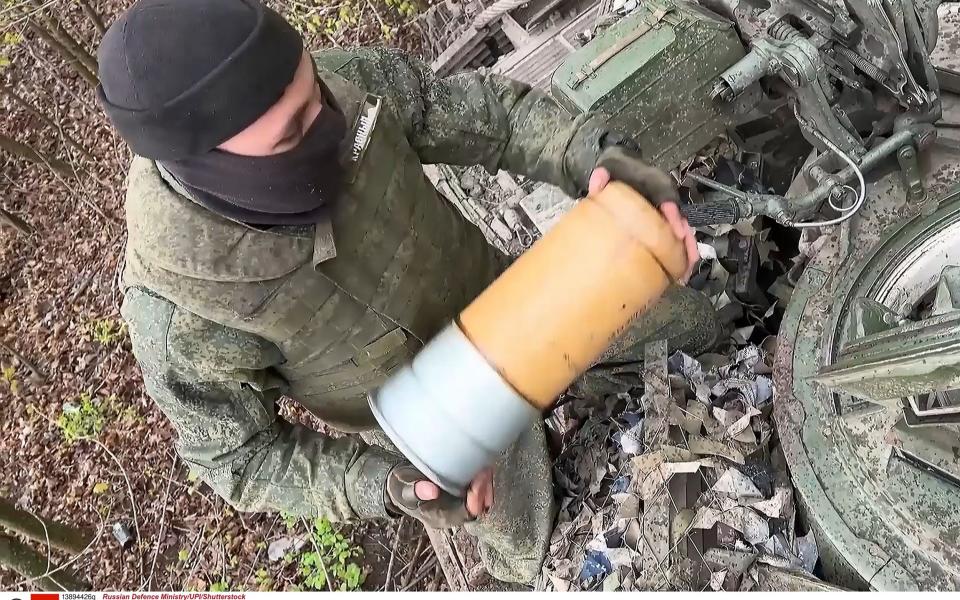
And as the war has ground on, new recruits have sometimes been given second-hand uniforms: the reason why their original owners no longer need them is not something many like to ask. Russia’s high command has insisted, however, that none of this is an excuse for sloppy dress standards.
In January, they reminded troops to shave regularly and not grow their hair. This infuriated the head of Russia’s Wagner mercenary group, Yevgeny Prigozhin. “War is the time of the active and courageous,” he fumed. “Not of the clean-shaven.”
Faulty kit
Russian military kit has such a poor reputation that it has spawned a host of Ukrainian social media sites making fun of it. A YouTube channel hosted by Andrii Nebytov, the head of Kyiv’s police, highlights everything from Soviet-era helmets through to body armour that doesn’t stop bullets.
As with uniforms, many Russian soldiers simply end up buying their own kit, spending up to £500 on proper body armour rather than risk getting a set meant only for paintballing. Some Russian conscripts have even been seen with ancient bolt-action Mosin rifles, last used in the Second World War.
'Zombie' warfare
The average Russian soldier’s combat experience wouldn’t feel unfamiliar to veterans of the First World War. Much of it is relentless trench warfare, with battles raging for months for control of small towns and villages. Russian infantry are also dispatched on blind charges across no-man’s land, running headlong into machine gun fire in a desperate attempt to overwhelm Ukrainian positions.
The charges are nicknamed “Zombie Waves” by Ukrainian troops, who eschew the same tactic themselves. “Firstly, it’s inhumane, and, secondly, we don’t have enough men to waste like that,” says one. The Zombie Waves also help explain the soaring Russian casualty rates. According to a leaked assessment by America’s Defence Intelligence Agency, Russia has already suffered around 40,000 dead and 170,000 wounded, compared with 16,000 dead and 110,000 wounded for Ukraine.
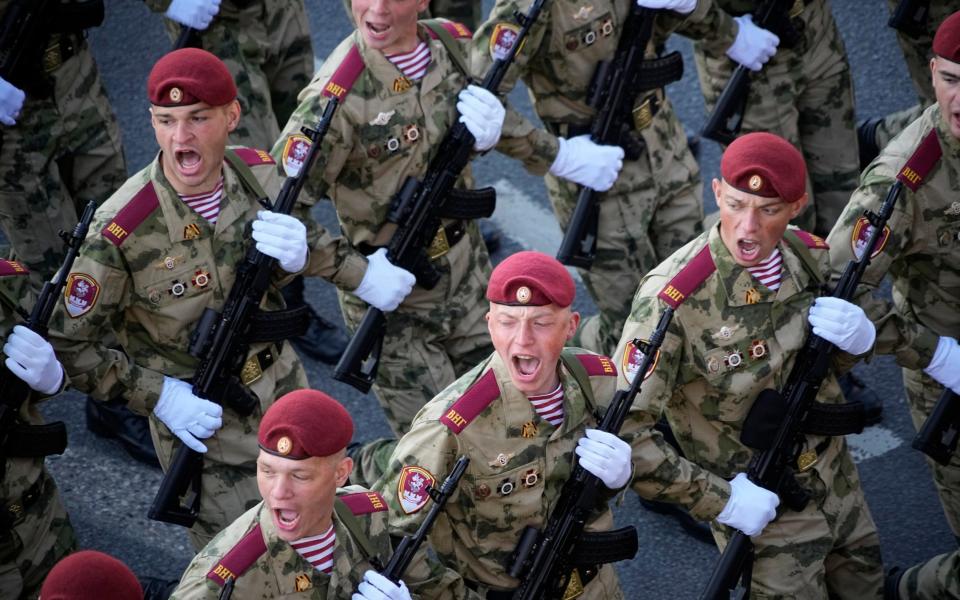
Life expectancy isn’t much better for Russian armoured units, thanks to anti-tank missiles supplied by Britain and America. Russian tanks are supposed to have “reactive armour” – plating packed with explosive that creates a counterblast to deflect missiles. Such is the corruption in the Russian armed forces, however, that the explosive in the plating has often been removed and sold.
Drink and drugs
To boost the Russian forces’ thinning ranks, military recruiters have been doing roadshows nationwide, promoting a stint on Ukraine’s front lines as “the choice of a real man”.
Those who sign a fixed-term contract can earn around 200,000 roubles (£2,000) a month – four times the rate pre-war. Similar pay rates apply for the 300,000 draftees called up in the “partial mobilisation” announced by Putin last September.
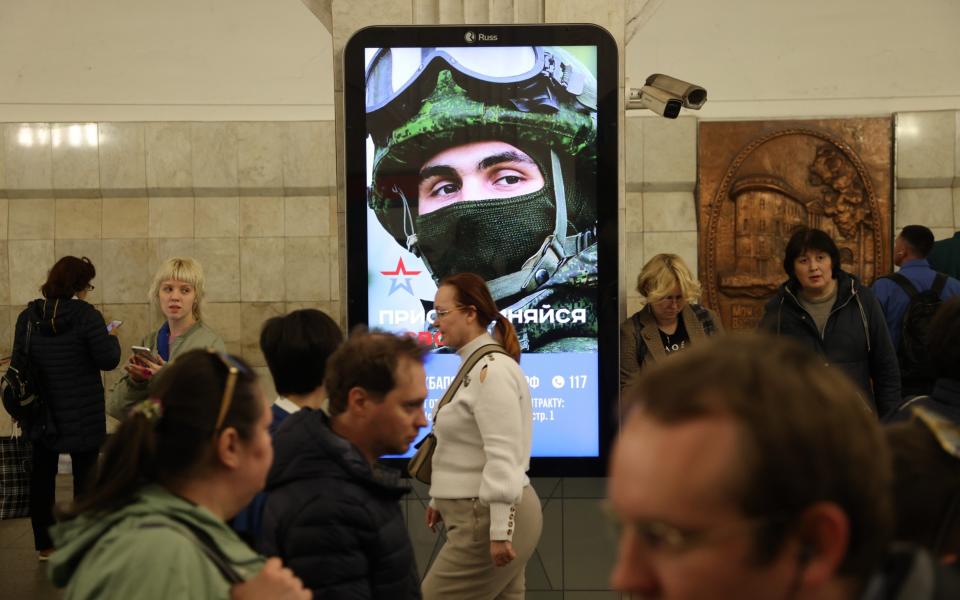
Russia has also used the war to drain its prison population, with convicts promised pardons if they serve with the Wagner Group, the private mercenary company run by Prigozhin, a close Putin ally. This motley army of ex-gangsters, rapists and murderers now makes up the bulk of the Zombie Waves.
“They just charge straight at us, with no infantry discipline at all, and no sense of fear either,” says one US volunteer fighting alongside Ukrainian forces. “Quite often they keep going even after being shot a few times, which makes you wonder if they’re on drugs.”
Nearly 10,000 convicts are believed to have died fighting with Wagner already. Meanwhile, those who have survived and won their freedom have often caused havoc on returning to their hometowns, where they are seldom welcome because of their criminal pasts.
One Wagner fighter who received a pardon, ex-murderer Ivan Rossomakin, was arrested within days of returning home on suspicion of killing an elderly woman. Another boasted that his Wagner military service card now served as a get-out-of-jail-free card whenever he had a run-in with local police.
One perk of service is the opportunity for looting. Russian troops have been reported stealing everything from washing machines to satellite dishes, sometimes even taking orders for goods from family back home. Alcohol is also frequently stolen and drunk on the front line – a sign, critics say, of the indiscipline and lack of morale in the Russian ranks.
Revolting food
While no army’s military rations are known for being cordon bleu, the Russian offerings are a case in point. Designed to fuel a soldier through combat for 24 hours, the emphasis is on calories rather than taste. Choose from tinned barley porridge and canned bread through to ox meat, liver pate, and bacon chunks swimming in fat.
“I tried some of the ox meat once,” says one British volunteer fighting with Ukrainian forces. “It tasted OK to start with because I was starving, but as my hunger eased it began to taste like dog meat.” The army-issue apple sauce and the chocolate – which sometimes is a greyish hue – are better.

But overall, it’s little surprise that Russian troops frequently loot Ukrainian supermarkets, which are remarkably well stocked with local produce and fresh bread.
Plummeting morale
With Putin showing no interest in peace talks – or the soaring Russian casualty figures – the best hope for any Russian soldier hoping to come home from Ukraine alive may be that the Russian army collapses outright.
Morale has already plummeted, with masked soldiers airing grievances on social media. “We’re just sent in for slaughter,” says one. “The commanders are telling us in the face we’re disposable soldiers and our only chance to go back home is to get injured in fighting.”
Incidents of desertion are growing, although in September, Russia’s parliament passed new laws making that punishable by 15 years’ jail. Russian generals are also deploying “barrier troops” with orders to shoot any soldiers who retreat – a tactic last used by Stalin in the Second World War.
The rot is gathering pace nonetheless. In a withering assessment last Sunday, Britain’s MoD claimed that Russia’s invasion force could no longer do major military operations, saying it was now made up mainly of “poorly trained mobilised reservists and increasingly reliant on antiquated equipment”.
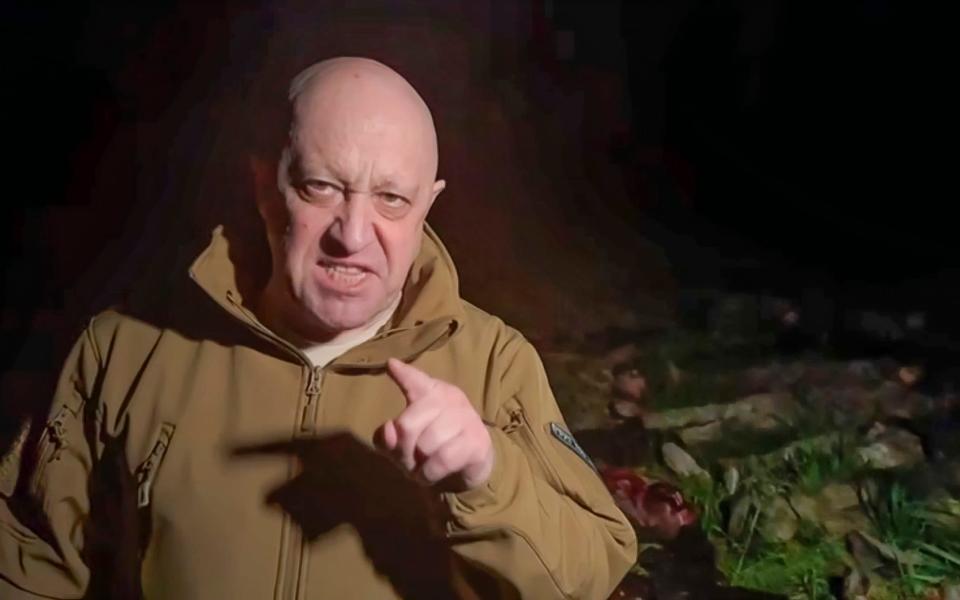
Nor is it just British military chiefs who are saying this. In a sign of the growing tensions within the Kremlin, Prigozhin has issued his own videos lambasting the Kremlin for letting soldiers down.
While he carefully avoids criticising Putin by name, he has also made cryptic references to an all-powerful “happy grandpa” in the government, whose competence he is now beginning to doubt.
“How can we win this war if – by chance, and I’m just speculating here – it turns out that this grandpa is a complete ----head?”
That he gets away with such comments suggests the Kremlin knows he is speaking not just his own mind, but that of most Russian soldiers in Ukraine.

